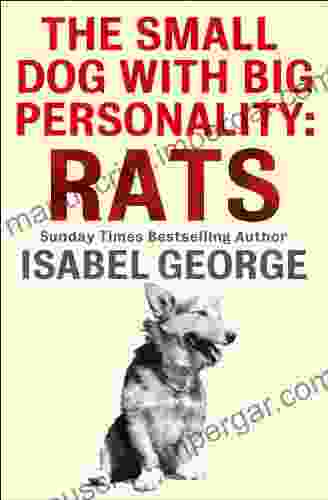Natural History, West Indian Slavery, and the Roots of American Literature

An Exploration of the Intricate Connections
The history of the Transatlantic slave trade and its profound impact on the development of American literature is an intricate and complex narrative. At the heart of this narrative lies the intersection of Natural History, a prevalent intellectual pursuit during the colonial era, and the brutal institution of West Indian slavery.
This article delves into the fascinating connections between Natural History, West Indian slavery, and the genesis of American literature. We will trace the ways in which naturalists, explorers, and writers of the time utilized natural history to justify the enslavement of African peoples and to construct racial hierarchies.
4 out of 5
| Language | : | English |
| File size | : | 4306 KB |
| Text-to-Speech | : | Enabled |
| Screen Reader | : | Supported |
| Enhanced typesetting | : | Enabled |
| Word Wise | : | Enabled |
| Print length | : | 313 pages |
Natural History and the Justification of Slavery
During the 18th and 19th centuries, Natural History became a dominant intellectual discipline, driven by the insatiable curiosity to explore and classify the natural world. This pursuit extended to the human realm, with scientists and explorers attempting to categorize different human populations based on physical characteristics.
Tragically, Natural History was often distorted and weaponized to support the racist ideology of the time. Naturalists argued that the physical differences between Europeans and Africans were evidence of inherent racial superiority and inferiority. This twisted logic was used to justify the enslavement of African peoples and the establishment of a racial caste system.
The Literary Echoes of Natural History
The influence of Natural History on the development of American literature cannot be overstated. Early American writers such as William Byrd II and Thomas Jefferson heavily incorporated natural history into their writings, often using it to reinforce the prevailing racial ideologies.
Byrd's "The History of the Dividing Line" (1728) is a prime example of this trend. In his account of a surveying expedition along the bFree Download of Virginia and North Carolina, Byrd describes the Native Americans and enslaved Africans he encounters through the lens of Natural History, reinforcing the perceived racial hierarchy of the time.
Environmental Racism and Postcolonial Ecocriticism
The legacy of Natural History and West Indian slavery continues to reverberate in contemporary society through the concept of environmental racism. Environmental racism refers to the disproportionate exposure of minority communities to environmental hazards. This disparity can be traced back to the historical displacement of African Americans and other marginalized groups to areas with lower environmental quality.
Postcolonial ecocriticism, a field of literary study, examines the ways in which literature reflects and shapes our understanding of the relationship between race, nature, and the environment. By analyzing literary works through an ecocritical lens, scholars can uncover the hidden narratives of environmental racism and its impact on marginalized communities.
The connections between Natural History, West Indian slavery, and the roots of American literature are deeply intertwined and complex. By understanding the historical context and the ways in which natural history was employed to justify slavery and racial hierarchies, we can gain a deeper appreciation for the complexities of American literature and its enduring legacy.
The ongoing struggle against environmental racism and the pursuit of a more just and sustainable society demand that we continue to explore and challenge the historical narratives that have shaped our understanding of race, nature, and the environment.
4 out of 5
| Language | : | English |
| File size | : | 4306 KB |
| Text-to-Speech | : | Enabled |
| Screen Reader | : | Supported |
| Enhanced typesetting | : | Enabled |
| Word Wise | : | Enabled |
| Print length | : | 313 pages |
Do you want to contribute by writing guest posts on this blog?
Please contact us and send us a resume of previous articles that you have written.
 Book
Book Novel
Novel Page
Page Chapter
Chapter Text
Text Story
Story Genre
Genre Reader
Reader Library
Library Paperback
Paperback E-book
E-book Magazine
Magazine Newspaper
Newspaper Paragraph
Paragraph Sentence
Sentence Bookmark
Bookmark Shelf
Shelf Glossary
Glossary Bibliography
Bibliography Foreword
Foreword Preface
Preface Synopsis
Synopsis Annotation
Annotation Footnote
Footnote Manuscript
Manuscript Scroll
Scroll Codex
Codex Tome
Tome Bestseller
Bestseller Classics
Classics Library card
Library card Narrative
Narrative Biography
Biography Autobiography
Autobiography Memoir
Memoir Reference
Reference Encyclopedia
Encyclopedia Michala Meiselles
Michala Meiselles Christopher E Forth
Christopher E Forth Cheryl Ann Lovie
Cheryl Ann Lovie Mark Anthony Brewer
Mark Anthony Brewer Elizabeth Grimm
Elizabeth Grimm Fabrice Midal
Fabrice Midal Fernando Santos Granero
Fernando Santos Granero Christopher Depree
Christopher Depree Dr Robert Demaria
Dr Robert Demaria Cherie Burns
Cherie Burns Christoph Lee
Christoph Lee Zaor Et Viera
Zaor Et Viera Charles R Morris
Charles R Morris Gila Ashtor
Gila Ashtor Christopher Ketcham
Christopher Ketcham Gary Gutting
Gary Gutting Chet Nicholson
Chet Nicholson David Boonin
David Boonin Tania Glenn
Tania Glenn Charlotte Child
Charlotte Child
Light bulbAdvertise smarter! Our strategic ad space ensures maximum exposure. Reserve your spot today!

 Robert FrostGreenhouse Technology and Management: The Ultimate Guide to Maximizing Plant...
Robert FrostGreenhouse Technology and Management: The Ultimate Guide to Maximizing Plant...
 Pat MitchellUnveiling the Pacific Tapestry: The Art of Clothing in "The Art of Clothing...
Pat MitchellUnveiling the Pacific Tapestry: The Art of Clothing in "The Art of Clothing... Benjamin StoneFollow ·19.5k
Benjamin StoneFollow ·19.5k Beau CarterFollow ·3.6k
Beau CarterFollow ·3.6k Jean BlairFollow ·5.5k
Jean BlairFollow ·5.5k Charlie ScottFollow ·16.8k
Charlie ScottFollow ·16.8k Virginia WoolfFollow ·10.4k
Virginia WoolfFollow ·10.4k Christian CarterFollow ·19.2k
Christian CarterFollow ·19.2k Gil TurnerFollow ·4.4k
Gil TurnerFollow ·4.4k Edward BellFollow ·13.4k
Edward BellFollow ·13.4k
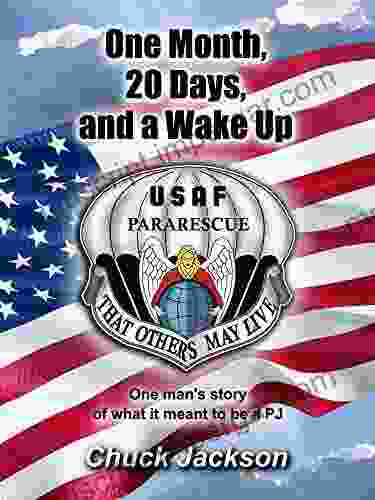
 E.E. Cummings
E.E. CummingsOne Man's Story of What It Meant to be Pj
In the tapestry of life,...

 Caleb Long
Caleb LongPattern Theory in Video Keno: Unveiling the Art of...
Embark on an enlightening journey into the...
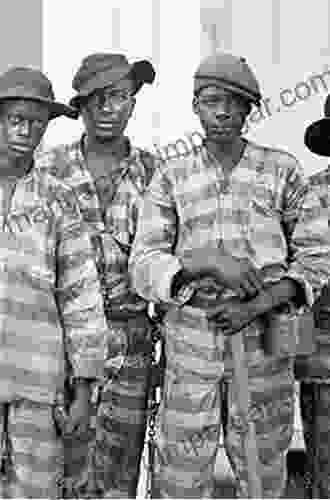
 Douglas Adams
Douglas AdamsUnveiling the Diplomatic Landscape: The Ottoman Empire,...
Delving into the History...
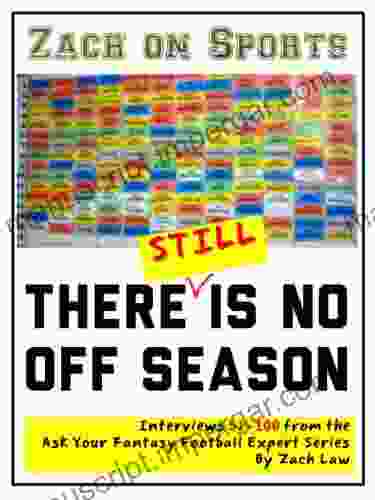
 Terry Bell
Terry BellThere Still Is No Off Season: Embracing Year-Round...
In a world consumed by routine and the allure...
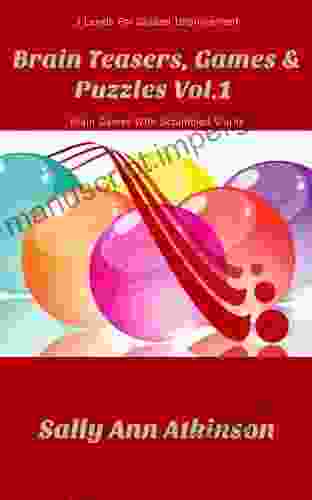
 Ibrahim Blair
Ibrahim BlairBrain Teasers Games and Puzzles: Exercise Your Mind with...
Prepare to embark on a captivating journey...
4 out of 5
| Language | : | English |
| File size | : | 4306 KB |
| Text-to-Speech | : | Enabled |
| Screen Reader | : | Supported |
| Enhanced typesetting | : | Enabled |
| Word Wise | : | Enabled |
| Print length | : | 313 pages |









